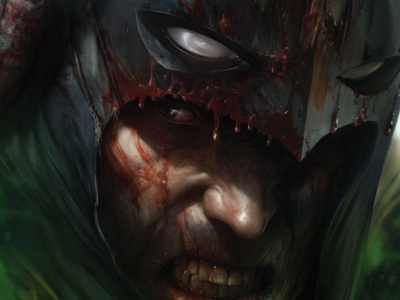 Nick Smith of the Pasadena Public Library read David Loftus’s thoughts on creator's rights (see "David Loftus of AK Comics on Creator's Rights") and had this to say.
Nick Smith of the Pasadena Public Library read David Loftus’s thoughts on creator's rights (see "David Loftus of AK Comics on Creator's Rights") and had this to say.David Loftus raised more questions than he thought, in his discussion of whether creators deserved compensation long after the fact. I don’t have all the answers, but have been in conversation with an intellectual properties attorney about these cases, and this is my insight based on those conversations.
One problem is that Mr. Loftus assumed that the company defense of these creations being "work for hire" is entirely correct. The problem is that, by the definition of modern copyright law, many of the Golden Age characters were NOT created as work for hire, which has a very specific meaning. For example, Jerry Siegel and Joe Schuster created Superman independently, and then sold the rights to the use of the character. That is not the same as work for hire, and different rights remain with creator in such a case. According to Joe Simon's autobiography, roughly the same thing happened with Captain America, but in that case there was even a royalty agreement in place, acknowledging that he was a separate creation licensed to Timely.
Just to further confuse things, there have been changes in copyright law which changed which rights can and do revert to the creator. This has affected both the comics field and the music industry, both notorious for contracts with no built-in reversion clauses. It is these revised laws and rulings which have been part of the basis for the Superman and Kirby lawsuits, as I understand it. As with Siegel and Schuster, creators often sold rights for pennies on the dollar, without legal advice or a proper understanding of the contracts. Thus, the band Eagles has also filed for reversion of rights under the same law being used by the Kirby estate, and other musicians who also wrote songs are doing the same.
Should families of creators have rights to creations from long ago? That's a tough call, but the truth is that the law on this is complicated and confusing. The Superman and Kirby lawsuits are not just a grab for money, they're an attempt to clarify these rights and set legal precedents. Whichever way these cases are decided, creators and publishers will have a better idea of what their rights really are, and that is potentially good for the industry.
The opinions expressed in this Talk Back are solely those of the writer, and do not necessarily reflect the views of the editorial staff of ICv2.com.







